Exporting through the grapevine
Over the past decades, Österreich Wein Marketing GmbH, internationally known as the Austrian Wine Marketing Board (AWMB), has put Austrian wines prominently on the map. Under the new CEO, the Britton Chris Yorke, who took over from Willi Klinger almost two years ago, the Board’s exports continue with unwavering success. Contrary to most other wine-producing countries, total Austrian exports grew in 2020 to a value of €187 million.
This is, most importantly, a quality success story: Worldwide wine consumption has generally leveled off since 2000, and Austria’s wine exports by volume are steady at around 55 million liters, but in the same period the value has increased nearly four mes. Put another way, in the early 2000s, 60% of Austrian export wine was leaving the country in tanker trucks. Today, 90% is in bottles, destined for up-market wine stores and restaurants. This was exactly Klinger’s big picture mission when he took over in 2007, to repair the image disaster of the infamous 1987 wine scandal.
However, AWMB can only succeed with dedicated distributors in their key markets. Peter Honegger, founder of Newcomer Wines in London, is one of them. Brexit and COVID notwithstanding, his 7-year-old business has seen uninterrupted growth. And while the British market remains a bit of a problem child, international distributors like Honegger are the true other half of the story.
Chris Yorke’s international vision
Stepping into Willy Klinger’s shoes after his 13-year tenure must have been a challenge. Besides greatly expanding the industry’s export reach, Klinger had built Austria’s DAC (or appellation of origin) system from the bottom up.
But Yorke seems unperturbed. A large, self-assured man, he came to Austria with 15 successful years marketing wines in New Zealand, increasing exports sevenfold to more than a billion NZD and earning an enviable reputation in the industry. His fluency in German (including Schwiizerdütsch from his childhood in Switzerland) further facilitated a smooth transition into his new role.
Having a non-Austrian at the helm of the AWMB is still remarkable though. “A Brit as the CEO of our sister organization in France would be inconceivable,” Yorke said laughing. Playing in the vineyards of his small village near Basel may have given him a predilection for wine, but it was his business studies and international work experience in marketing of premium consumer goods that landed him the job in New Zealand, and now in Austria.
Chris Yorke
Just like Yorke, Honegger didn’t have a wine background. Although raised in Klosterneuburg with a father in hospitality – he owns a hotel in Vienna’s 8th district – it was through his father-in-law that he gained appreciation for wine. But as a wine merchant, Honegger sees himself as mostly self-taught. He added a business education in London at the Cass Business School of City University, while his girlfriend, Daniela Pillhofer headed for the London School of Economics. In 2014, their second year in college, they began to feel an itch for good and affordable Austrian wine.
“At the time, Berry Brothers & Rudd [London’s legendary wine merchant] offered high-end, expensive wines and supermarkets just sold cheap plonk,” Honegger says. It was the start of a pop-up shop and bar for Austrian wine. “We neither visited wine fairs nor had any industry experience. We just scanned all the websites of Austrian wineries and requested samples from a hundred of the ones that appealed to us most.” Claus Preisinger and Markus Altenburger were among the first nine with whom Honegger and Pillhofer developed close personal relationships and whose wines are still in their portfolio.
In 2016 their business Newcomer Wines moved to a permanent location in Dalston, East London, not far from trendy Shoreditch. “With low rents, this part of town was already a hotbed for all sorts of new hospitality businesses like the now famous restaurants The Clove Club and Lyle’s.”
“London is a city of opportunities,” Honegger explains. People, literally, walk faster, what he sees as symbolic for the business mindset of the British capital. “Here, if you give 150%, you get back even more. In Austria, when you give 100%, you get only 80% back. However, you do have a good quality of life,” he admits, something Yorke confirms. The latter praises the usual: Vienna’s more relaxed lifestyle, the great public transportation system and its joie de vivre.
Peter Honegger
London’s world stage
But for wine London – more than Vienna – can rightfully claim its place on the world stage. Traders like Farr Vintners, journalists like Jancis Robinson, private clubs like 67 Pall Mall, Liv-ex, the wine exchange, and trendsetters like Noble Rot influence the market far beyond the country’s boundaries. Nonetheless, imports of Austrian wine into the UK lag compared to its North Sea neighbors. On a per capita basis, the Netherlands, Sweden, and Norway imported up to 17 times more Austrian wine by volume in 2020 than the UK. And while all three countries saw an increase (47% in Norway) and value (58% in Sweden) in 2020, these indicators were down for the UK.
“Austria is largely a producer of premium priced wines that sell through restaurants,” Yorke explained. “In the UK, these were particularly hard hit by the pandemic.” Brexit only aggravated the situation, he said, with deliveries frequently delayed by additional checks at British customs.” Fortunately, the British government recently announced they will drop the VI-1 import certificate, a requirement introduced by the EU to protect European wine producers from knock-off Burgundies and Bordeauxs from new world wine countries and regions in California, South America and Australia. This may sort out at least some of the administrative hurdles.
But Newcomer has managed to buck the trend. “Although growth levels have tapered off, our sales were still up in 2020,” Honegger said. “Due to COVID-19, sales to restaurants were obviously down, but retail more than compensated for this.” Unable to go out for dinner, people feasted on premium wines. It is a trend Newcomer benefitted from. Moreover, the pandemic may have made consumers, at least temporarily, more inclined to buy organic, a prerequisite to be in Newcomer’s portfolio. As for Brexit, Honegger simply doesn’t know what the future will bring. “In the worst case scenario, trade with the EU will fall back on WTO [World Trade Organization] conditions,” Honegger said, “which would mean that duties and tax could go up by as much as 4%.” But as the UK already has one of the highest taxes on alcoholic beverages in Europe, he doesn’t expect an additional 4% to make much difference. However, for supermarket and bulk wine buyers, it may be different.
Honegger doesn’t worry about Brexit-associated delivery problems. He relies on his haulers to handle additional requirements and deliver on time. However, as Brexit was largely an unprepared-for adventure, and while the UK government is still allowing grace periods for new regulations, there remain uncertainties – potentially risky ones for a hard-to-store product like wine.
“By closely following the latest developments and communicating the implications to the vintners, AWMB actually plays a facilitating role,” Yorke explained. “We also help by consolidating deliveries to the UK from several vintners,” he adds. AWMB thus helps minimize red tape for individual wineries.
Altogether, Yorke is confident that the UK market will fulfill its potential in the mid- rather than the short-term future. Why? “The UK is a sophisticated wine market where at least a good share of the consumers appreciate aged wines. Blaufränkisch, but also Grüner Veltliner, can meet that demand.” However, he admitted, “the UK is a competitive market with a large, international supply of wines at every price point, so we need to up our game.”
And that is just what AWMB is doing.
Jutta Ambrositsch, one of Newcomer's vintners
During the pandemic, AWMB developed several important new concepts. For an event for the British market, AWMB shipped thousands of test-tube-size samples from dozens of vintners to the UK. Journalists could subsequently meet the vintners online to speak about their wines while tasting the shipped items. As the pandemic enters a new phase with fewer restrictions, the AWMB is moving to a hybrid approach, where physical presentations are followed some weeks later by online meetings with the vintners. Switzerland, Austria’s second most important market after Germany, was the guinea pig. The UK will follow at a later stage.
Marketing regional character
But it isn’t just AWMB’s innovative approach that defines their success. Yorke also credits his young, professional and flexible team. “Austrian wine is perceived as a high-quality product that fits the current fashion in taste: fresh and not too oaky,” he said. It also has good environmental credentials. “With 16% of the grapes organically grown, we are among the highest in the world and we have a sustainability award program.”
Another asset: Austria is home to an array of interesting indigenous varieties like Sankt Laurent, Zweigelt, Blaufränkisch and, of course, Grüner Veltliner, while the potential of lesser-known varieties like Zierfandler, Rotgipfler and Roter Veltliner is still mostly untapped.
Yorke’s future plans entail an increased focus on wine tourism and a more granular, that is a more niche and more targeted, form of promotion. “The Austrian wine industry is too diverse to use a one-size-fits-all promotion strategy,” he said. Once Austrian wine is firmly associated with keywords like innovative, sustainable and premium, AWMB will start communicating the regional differences, for which it can rely on its appellation system. Finally, Yorke intends to expand the Board’s efforts in countries with latent demand, like Russia, China and Singapore. From his days in New Zealand, his address book is full of valuable contacts in Asia.
Strohmeier is in Newcomer's portfolio
Meanwhile, Newcomer Wines has strongly contributed to Austria’s image as a leader in sustainable agriculture. Its porfolio now consists of wines from 25 Austrian vintners, all committed to organic or biodynamic farming. For Honegger and Pillhofer, it is a logical choice. In the longer run, a winery can only survive when it takes care of its environment. So their portfolio reads like the who-is-who of Austrian natural wine. But Honegger avoids the term. “My vintners are the leading winemakers in their regions,” as what are now considered organic and low intervention processes are, for many, simply the traditional practices.
He is now also actively communicating the regional differences. “I want to reconnect people with the wines of Central Europe, the former parts of the Austrian Empire. You can’t understand Styrian wine without drinking Slovenian wine, just as you can’t understand wine om Burgenland or the Weinviertel, without drinking wines from Hungary and Moravia.”
Getting that message across requires education, a market gap that Honegger and Pillhofer, enterpreneurs that they are, have eagerly met. Little Wine is their second enterprise that provides “the story behind the bottle.” Sommeliers and retail employees can learn online about wineries, winemakers, the winemaking process, and much more from the comfort of their living room. Not as glamorous as tramping through the vineyards and raising a glass with a vintner, but far more accessible.
With importers like Honegger and a marketing organization that keeps finetuning its methods and expanding its reach across Europe and the UK, as well as Asia and beyond, the success story of Austrian wine is certain to continue.
Main photo: Ried Heiligenstein ©AWMB
A version of this article has been published in Metropole (September 2021).
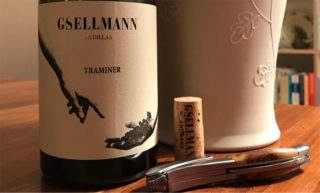
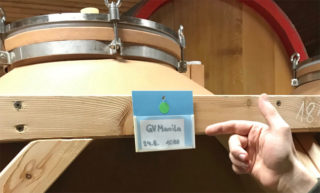
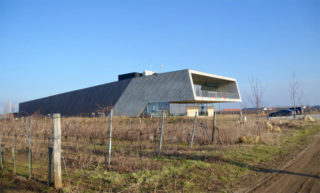
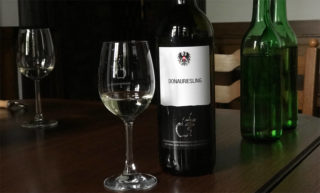
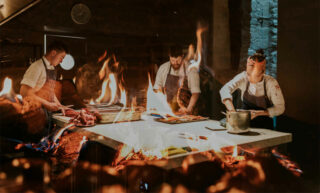
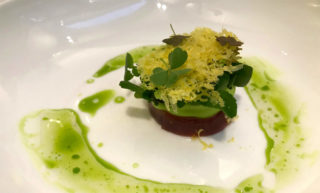
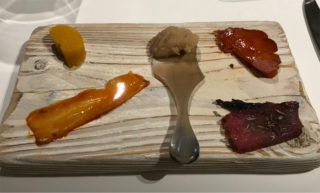
Comments